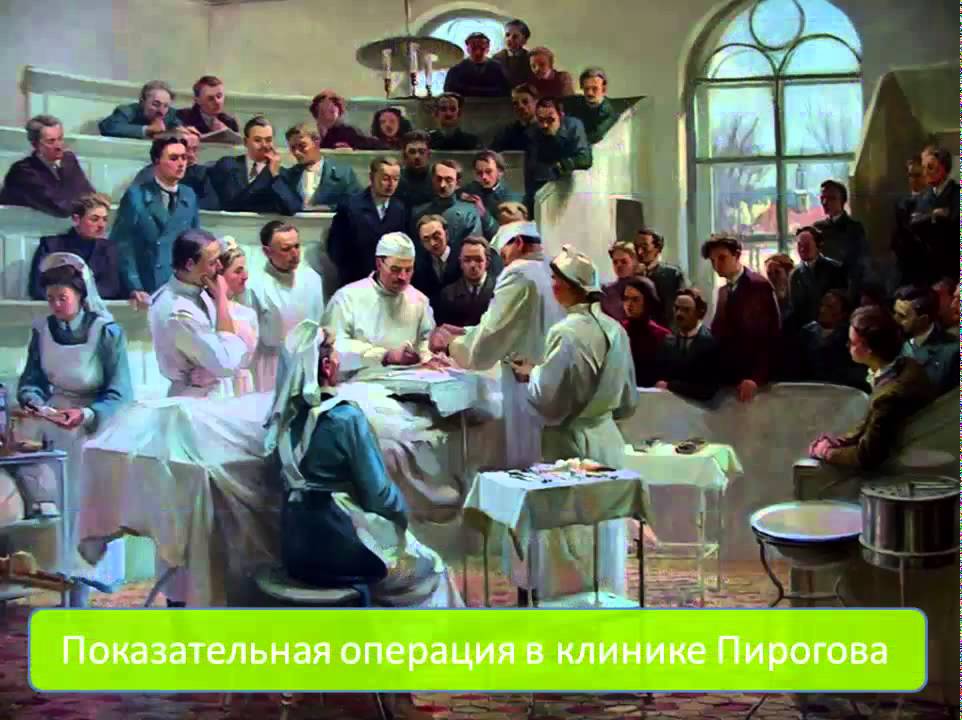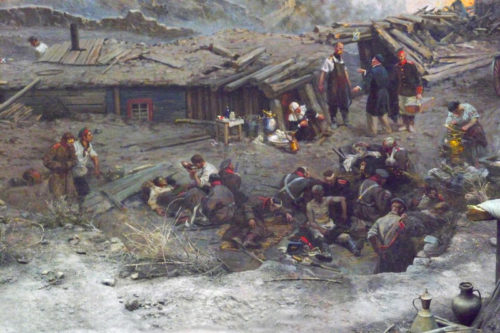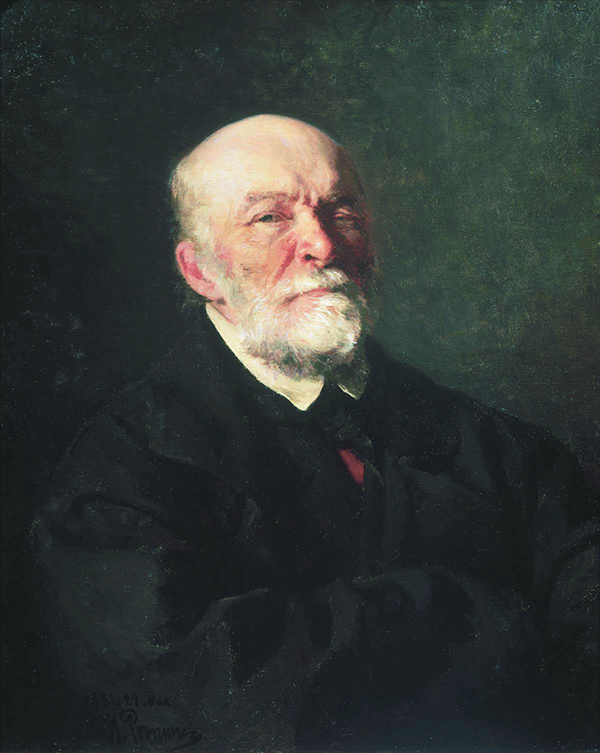50 Influential Docs in History: Nikolay Ivanovich Pirogov (1810-1881)
I recently followed along for several weeks as a medical information site posted their ranking of the “Top 50 Most Influential Doctors in History.” Despite the fact that I benefitted from their insight and life’s accomplishments nearly every day, I had almost no clue who many of them were.
Nikolay Pirogov, father of field medicine
How can one be grateful if you don’t even know who to thank?! So, I figured that you might like to go through them with me a little at a time – if for no other reason than to become acquainted with WHAT some of the things are that we take for granted today, even if it doesn’t matter to you WHO made it possible.
We’ll begin from the bottom up with their list, number 50, but certainly not the least – as you will see.
Nikolay Ivanovich Pirogov (1810-1881) – #50
Father of Field Surgery; anesthesia; casting; educational reform
Nikolay Ivanovich Pirogov was born November 25th, 1810 in Moscow Russia to a Russian military man who died prematurely in 1824 and left the family destitute.
By then however, Nikolay had already learned several languages and showed enough promise that his family doctor, Efrem Mukhin, used his influence as a professor of anatomy and physiology at Moscow State University to accept him as a student two years early at 14 years of age – a boy destined to be designated by his peers with “placing surgery on a scientific basis.”
Nikolay Pirogov: Father of Field Surgery
At medical school graduation when he was merely 17 (1828), he realized he was inadequately prepared for his desired specialty, surgery, having only been allowed to watch (not perform) two surgeries.
So, he went to Germany and studied under the best surgeons and excelled enough to be appointed as chair of surgery in a German hospital when he was 26. A few years later he was appointed professor of surgery at the military academy of medicine in Saint Petersburg in 1840. His military career brought literally ground-breaking improvements to the care of the wounded.
As an army surgeon in the Crimean War he was first to use ether anesthetic, investigated cholera, invented several improved surgical techniques for amputation, introduced a five category system of triage, used plaster casting techniques while others were still using heavily starched linen and compiled a four volume topographical anatomical atlas of the human body.
He has several human anatomical sites and surgeries which bear his name and is now considered to be the father of field surgery – in addition to having helped develop the Russian female corps of nurses established by Grand Duchess Yelena Pavlovna to echo what Florence Nightingale did for the British.
Nikolay Pirogov: Retirement
The war must have changed Nikolay. Upon his return in 1856 he withdrew from the scientific academy and began writing influential papers about problems with teaching and education. He argued for education of the poor, non-Russians and women; against too early specialization of students and for the development of secondary schools. He returned to the Crimea appointed as a superintendent of schools which eventually clashed with political authorities leading to his retirement.
He retired to his estate in Vishnya in 1856 and began treating the local peasants, established a clinic and learned the Ukrainian language. He treated the composer Tchaikowsky and wrote “the Old Physician’s Diary” and “Questions of Life.”
From then on he only left his estate twice: once with a Red Cross delegation to audit the battlefields and field hospitals of both sides in the 1870 Franco–Prussian War; and also as a field surgeon in the Russo–Turkish War in 1877 for the independence of Bulgaria.
He appeared in public for the last time in May of 1881 then died later that year in Vishnya (Vinnytsia). His body is preserved using embalming techniques he himself developed and rests “at room temperature in a glass-lid coffin” visible in a church there.
Nikolay Pirogov: Legacy

Recognition of Pirogov’s life works has been made by the bestowal of the Russian Academy of Sciences highest award, the Demidov Prize, three times. He was appointed honorary citizen of Moscow and the Pirogov Society, founded four years after his death, was established to better medical training and treatment in Russia.
The Soviet Union issued postage stamps of him in 1946 and in 1960 during his 150th anniversary and his estate and clinic have been established as the Pirogov museum. A glacier in Antarctica, the largest hospital in Sofia and the 2506 asteroid (discovered in 1976) are all named “Pirogov” in honor of him.
The highest humanitarian prize in the Soviet Union was the Pirogov Gold Medal; and in addition to a few surgical procedures carrying his name, at least three structures of the human body are named in medical literature after him: the Pirogov angle, the Pirogov aponeurosis and the Pirogov triangle.
The American Center for Disease Control (CDC) has written of him:
In 2010 we celebrated a great date in the world history of medicine–the bicentenary of Nikolay Ivanovich Pirogov, the greatest Russian surgeon and one of the greatest military surgeons of all times, the founder of Surgical (or Topographical) Anatomy and experimental branch of Surgery, a co-founder of Military-field surgery, an educator and a social figure, a man of daring humanistic ideals. Each aspect of his fruitful activities is by itself a subject of special scientific investigation and deep studies.
Biographic Summary
Nikolay Ivanovich Pirogov was a prominent Russian scientist, medical doctor, pedagogue, public figure, and corresponding member of the Russian Academy of Sciences.
Born: November 25, 1810, Moscow, Russia
Died: December 5, 1881, Vinnytsia, Ukraine
Education: Moscow State University
Known for: Battlefield medicine, enhanced triage techniques, plaster casting, ether anesthesia, several new surgical techniques, educational reform and daring humanistic ideals.
Books: Questions of Life: Diary of an Old Physician; Topographical anatomy of the human body (vol. 1–4, 1851–1854); Researches, Practical and Physiological on Etherization.
Parents: Ivan Pirogov, Elizaveta Pirogova
25 Posts in Top 50 Doctors (top50) Series
- 27 - Charles D. Kelman - Cataracts – 9 Mar 2023
- 28 - Cicely D. Williams, Kwashiorkor, Breastfeeding, Whistleblower – 21 Jun 2022
- 29 - Dame Cicely Saunders, Hospice – 23 Apr 2018
- 30 - David L. Sackett, Evidence-based Medicine – 2 Apr 2018
- 31 - E. Donnall Thomas & Joseph Murray, Bone Marrow Transplants – 23 Feb 2018
- 32 - Elizabeth Blackwell, women in medicine – 29 Jan 2018
- 33 - Elisabeth Kübler-Ross, stages of grief – 5 Jan 2018
- 34 - Watson & Crick, DNA – 2 Dec 2017
- 35 - Mahmut Gazi Yaşargil, Micro-Surgery – 24 Oct 2017
- 36 - George Papanicolaou, Cytopathology, Cancer – 29 Sep 2017
- 37 - Dr. James Parkinson, Parkinson's Disease – 1 Sep 2017
- 38 - Dr. John Snow, cholera – 20 Aug 2017
- 39 - Dr. Joseph Kirsner, GI Joe – 27 Jul 2017
- 40 - Lawrence (Larry) Einhorn, chemotherapy – 16 Jun 2017
- 41 - Robert Koch, modern bacteriology – 21 Mar 2017
- 42 - Stanley Dudrick, TPN – 28 Feb 2017
- 43 - Stanley Prusiner, neurodegenerative diseases – 25 Jan 2017
- 44 - Victor McKusick, medical genetics – 3 Jan 2017
- 45 - Virginia Apgar, anesthesiology & newborn care – 12 Nov 2016
- 46 - William Harvey, circulation – 12 Oct 2016
- 47 - Zora Janžekovič, burns – 26 Sep 2016
- 48 - Helen Taussig, blue babies – 3 Sep 2016
- 49 - Henry Gray, anatomy – 3 Jul 2016
- 50 - Nikolay Pirogov, field surgery – 11 Jun 2016
- Top 50 Doctors: Intro/Index – 10 Jun 2016
Advertisement by Google
(sorry, only few pages have ads)


